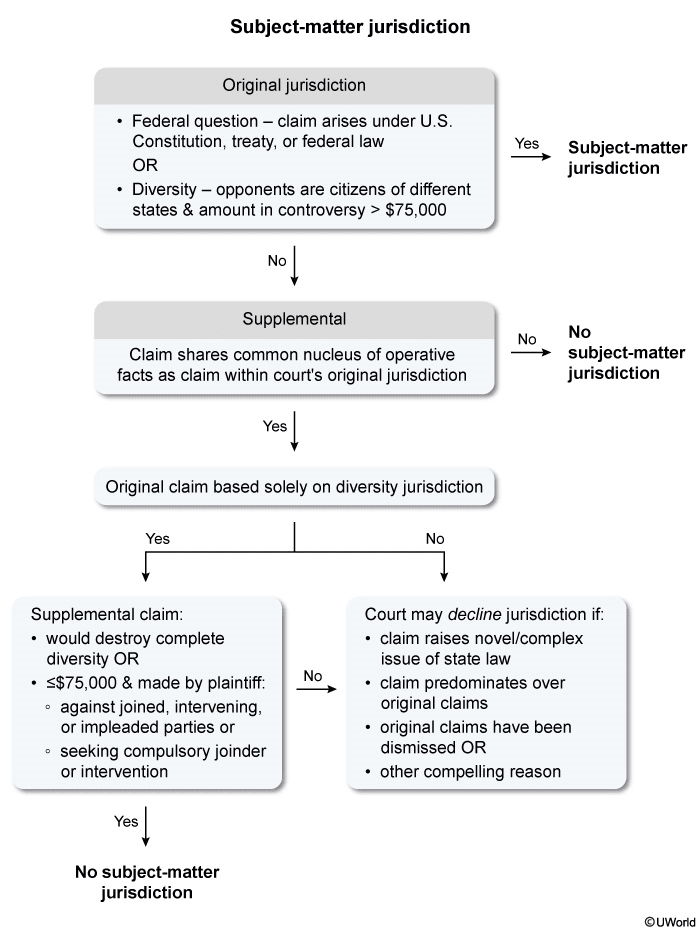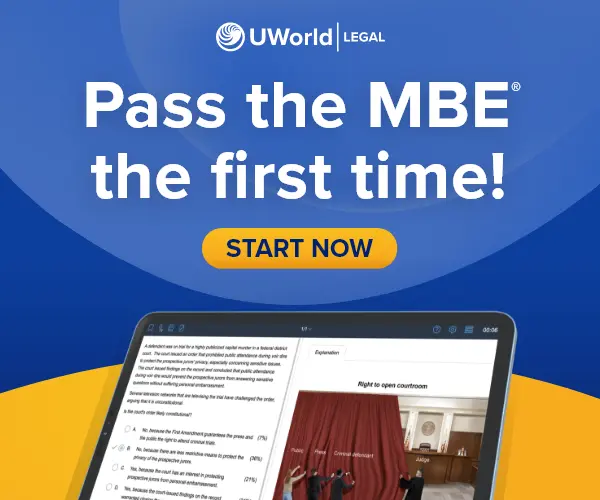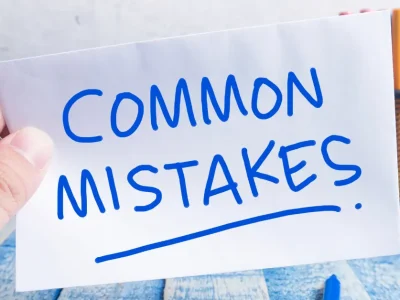Supplemental jurisdiction may seem confounding or curious, but it really isn’t! You only have to worry about supplemental jurisdiction if a suit involves multiple claims and one claim falls within, and at least one claim falls outside, the court’s original subject-matter jurisdiction. Original jurisdiction can be established through either:
- federal-question jurisdiction – when the dispute arises under the U.S. Constitution, a treaty, or a federal statute or
- diversity jurisdiction – when the opposing parties are citizens of different states, and the amount in controversy exceeds $75,000.
The court may exercise supplemental jurisdiction over the claim(s) that fall outside of its original jurisdiction if they share a common nucleus of operative facts with a claim within its original jurisdiction (eg, when the claims arise from the same accident). Curiously, the court’s decision to exercise supplemental jurisdiction depends on whether the original claim is based on federal-question or diversity jurisdiction.
If the original claim is based on federal-question jurisdiction, a court may exercise supplemental jurisdiction or decline to do so for any of the following reasons:
- the supplemental claim raises a novel/complex state law issue
- the supplemental claim predominates over the original claims
- the original claims have been dismissed
- there is another compelling reason.
If the original claim is based on diversity jurisdiction, a court is prohibited from exercising supplemental jurisdiction if the supplemental claim:
- would contaminate diversity of citizenship between the opposing plaintiffs and defendants or
- seeks $75,000 or less and is made by a plaintiff (1) against parties added through joinder, intervention, or impleader or (2) seeking to join through compulsory joinder or intervention.
UWorld MBE Qbank created this flowchart to help you navigate the not-so-confounding rules for supplemental jurisdiction.

Use this flowchart to guide your supplemental-jurisdiction analysis when you tackle practice civil procedure questions in the UWorld MBE® QBank.
MBE® is a registered trademark of The National Conference of Bar Examiners® (NCBE®). NCBE does not endorse, promote, or warrant the accuracy or quality of the products or services offered by UWorld Legal.




